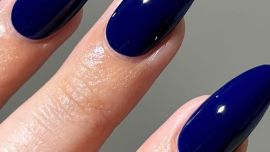It was one hearing, with just two witnesses. But, in an era of political polarisation and yawning cultural divides, Americans came away having heard very different things.
Millions of men and women listened to nervous-but-composed college professor Christine Blasey Ford tell the US Senate Judiciary Committee on Thursday that she was “100 percent” certain that Supreme Court nominee Brett Kavanaugh sexually assaulted her when they were teenagers, and they lauded her credibility and courage in speaking out. Others saw a woman with a spotty memory who failed to prove Kavanaugh was her abuser, and believed the judge as he repeatedly choked up and vigorously defended himself. “The allegation of misconduct is completely inconsistent with the rest of my life,” he said.
Americans followed the hours of testimony from their homes, in their cars, in offices and in classrooms. The hearing was to be the culmination of a Supreme Court nomination process that will determine the political bent of the court for decades, and quite likely decide issues such as the legality of abortion and gay marriage in the United States.
It took place in a week when “America’s Dad,” Bill Cosby, was declared a sexual predator and sentenced to jail, and at a time when the US president himself has battled multiple accusations of sexual misconduct. The major backdrop was the #MeToo movement, in which women across the country have brought down powerful men they accused of sexually assaulting or harassing them.
Ford’s detailed testimony brought many to tears in the wood-panelled hearing room and beyond as she described being locked in a bedroom as a 15-year-old by two drunk boys whom she identified as Kavanaugh and his friend Mark Judge. She said Kavanaugh groped her, tried to take off her clothes and covered her mouth to keep her from screaming.
“Both Brett and Mark were drunkenly laughing during the attack,” she said, adding that she eventually escaped to a bathroom. In fact, she said, her most indelible memory was the “uproarious laughter,” the two boys “having fun at my expense.”
She was “terrified” to testify, she said, but did so because “I believe it is my civic duty to tell you what happened to me while Brett Kavanaugh and I were in high school.”
Kavanaugh began his own testimony on a note of barely contained fury. He labelled Ford’s accusation and two other allegations that have followed as “smears,” “character assassination” and part of a “calculated and orchestrated political hit” fuelled by a hatred of US President Donald Trump and funded by left-wing opposition groups.
He repeatedly fought to control his tears as he talked about how the allegation has destroyed his family. “The truth is that I have never sexually assaulted anyone — not in high school, not in college, not ever,” he said.
Anita Hill says one of the things that stood out to her from Kavanaugh’s hearing was how his emotional and angry testimony compared to the calm testimony of the woman accusing him of sexual assault.
Hill gave Senate testimony in 1991 about her allegations of sexual harassment by then-Supreme Court nominee Clarence Thomas. Hill spoke yesterday at the Grace Hopper Celebration, a gathering of women technologists in Houston, one day after Kavanaugh and Ford testified before the Senate Judiciary Committee.
Hill noted that during Thursday’s hearing, Kavanaugh “was able to express a real anger, an aggression, as well as a lot of emotion.” No female Supreme Court candidate, she said, “would ever have the licence to express [herself] in that way.” Hill says she was impressed with Ford’s demeanour and her careful responses to questions. She said she recognized Ford’s fear but also her openness to “share it in a setting where she didn’t want to be.”
“At the end of the day, I certainly believed her,” Hill said.
























Comments